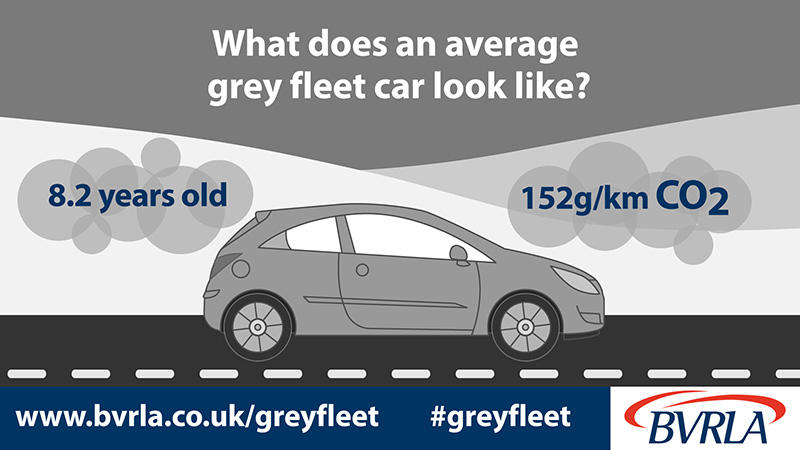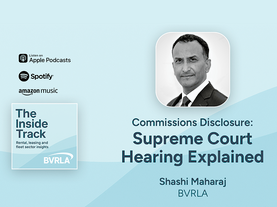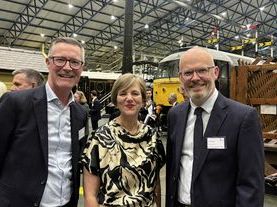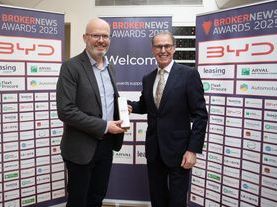The British Vehicle Leasing and Rental Association (BVRLA) is calling on the government to tackle the challenges of the UK’s 'grey fleet', following the publication of a new report that showed the true cost of employees using their own cars for work purposes.
The British Vehicle Leasing and Rental Association (BVRLA) is calling on the government to tackle the challenges of the UK’s 'grey fleet', following the publication of a new report that showed the true cost of employees using their own cars for work purposes.
According to the Getting To Grips With Grey Fleet report, which has been produced by the Energy Saving Trust (EST), some 12 billion business miles are driven each year on Britain's roads by employee-owned cars, costing organisations more than £5.5bn a year in mileage claims and car allowances.
In total, the UK's grey fleet comprises 14 million cars – 40% of all vehicles on the road. In the private sector, the grey fleet costs almost £5bn and covers 11 billion miles, emitting 3.2m tonnes of CO2 and 7,038 tonnes of NOx. In the public sector, use of grey fleet vehicles costs £786m per year with the bulk of the 1.5bn miles driven by employees of the NHS, local authorities and civil service. These vehicles emit 447,000 tonnes of CO2 and 1,118 tonnes of NOx.
Using government figures and data from real-life fleets, EST researchers developed a profile of a typical grey fleet vehicle and compared it to other alternatives, including rental cars, car club vehicles and company cars.
The research found that the average grey fleet car was older, more polluting and potentially more dangerous than its counterparts.
Grey fleet vehicles had an average age of 8.2 years. They produce 8,156 tonnes of NOx, which is equivalent to twice the emissions from Transport for London buses.
Commenting on the publication of the report, BVRLA Chief Executive Gerry Keaney has called on the government to tackle these issues in its transport strategy. Mr Keaney said: "The Approved Mileage Allowance Payments (AMAP) system used for reimbursing grey fleet drivers is the only part of the motoring tax regime that provides no incentive to drive fewer business miles or use cleaner vehicles. This blind spot is wasting taxpayer money, costing businesses millions of pounds, damaging our environment and making our roads more dangerous.
The BVRLA is calling for a concerted effort from company bosses and policymakers to tackle these issues. The association wants to see a 50% reduction in grey fleet mileage and costs by 2020, and is urging government ministers to help by highlighting the alternatives to grey fleet use and offering best practice guidance, particularly for public sector organisations. Keaney added: "Cutting grey fleet mileage by just 15% would be the equivalent of taking 225,000 cars off the road in emissions terms."
As well as the over £5.5bn of potentially unmanaged costs from mileage claims and car allowances, the research indicated that grey fleet vehicles account for a significant portion of the £2.7bn costs associated with work-related road accidents.
Andrew Benfield, EST's group director of transport, said: "Switching to more modern vehicles for work purposes can lead to significant cost savings, cut vehicle emissions and improve employee safety. Bosses should introduce rigorous electronic mileage management systems to reduce 'mileage inflation' by employees claiming a mileage allowance, and remove the incentive to drive unnecessary business miles.”
Both organisations have recommended that employers should mandate car rental for any work-related vehicle journey over 55 miles, and employees driving more than 10,000 miles a year should lease a company car. Other recommendations in the report include using car clubs, videoconferencing and encouraging employers to incentivise alternatives to driving such as public transport, cycling and walking. The report includes a number of case studies from organisations in both the private and public sector which have tackled their grey fleet and had success.
To find out more, visit the BVRLA's Grey Fleet advice webpage.




